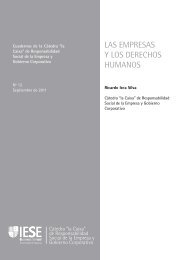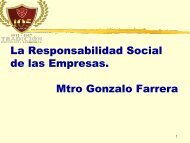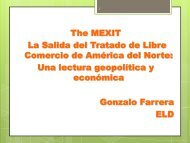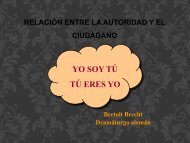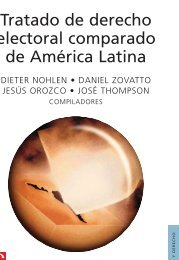0745685749 enemies democracy
You also want an ePaper? Increase the reach of your titles
YUMPU automatically turns print PDFs into web optimized ePapers that Google loves.
38 The Inner Enemies of Democracy<br />
way it was brought to a halt and dreaming of giving<br />
it a new start. This movement began in the aftermath<br />
of 9 Thermidor with the ‘conspiracy of equals’ led by<br />
Babeuf. ‘The French Revolution’, we read in the manifesto<br />
of the ‘Equals’, ‘is only the forerunner of another<br />
revolution, much larger, much more solemn: it will be<br />
the last.’ 12 In these formulas, we can see the emergence<br />
of the millenarian spirit – the time of the final battle is<br />
approaching – now translated into Communist terms.<br />
The conspiracy failed, but many other visionaries tried<br />
to imagine a continuation and radicalization of the<br />
failed revolution. Saint-Simon (a disciple of Condorcet)<br />
and Fourier, Proudhon and Louis Blanc, Herzen and<br />
Bakunin offered different variants of socialism. The<br />
version that would experience the most lasting success<br />
was the one developed, from the 1840s onwards, by<br />
two Germans living abroad, Karl Marx and Friedrich<br />
Engels, the founders of true Communism. A brochure<br />
published in London in 1848 was to have a lasting success:<br />
their Manifesto of the Communist Party.<br />
This booklet describes in eloquent terms the conditions<br />
of life of the exploited classes, who have now<br />
become the equivalent of a pure commodity, and formulates<br />
the dream of a perfect society common to all men.<br />
Its analysis of past societies is based on the assumption<br />
that struggle is the only form of social interaction in the<br />
history of humanity: the main question is who will seize<br />
power and use it to exploit the other. There is nothing<br />
shared by all the members of a society, as everything<br />
belongs to one or other of the competing sides. There<br />
is no universal category: neither morality, nor justice,<br />
nor ideas, nor civilization. No religion, no tradition<br />
(including the family and private property) escapes its<br />
class origins.<br />
This new phase of messianism took place at a time of<br />
general admiration for the achievements of science, illustrated<br />
by the contemporary industrial revolution. This





